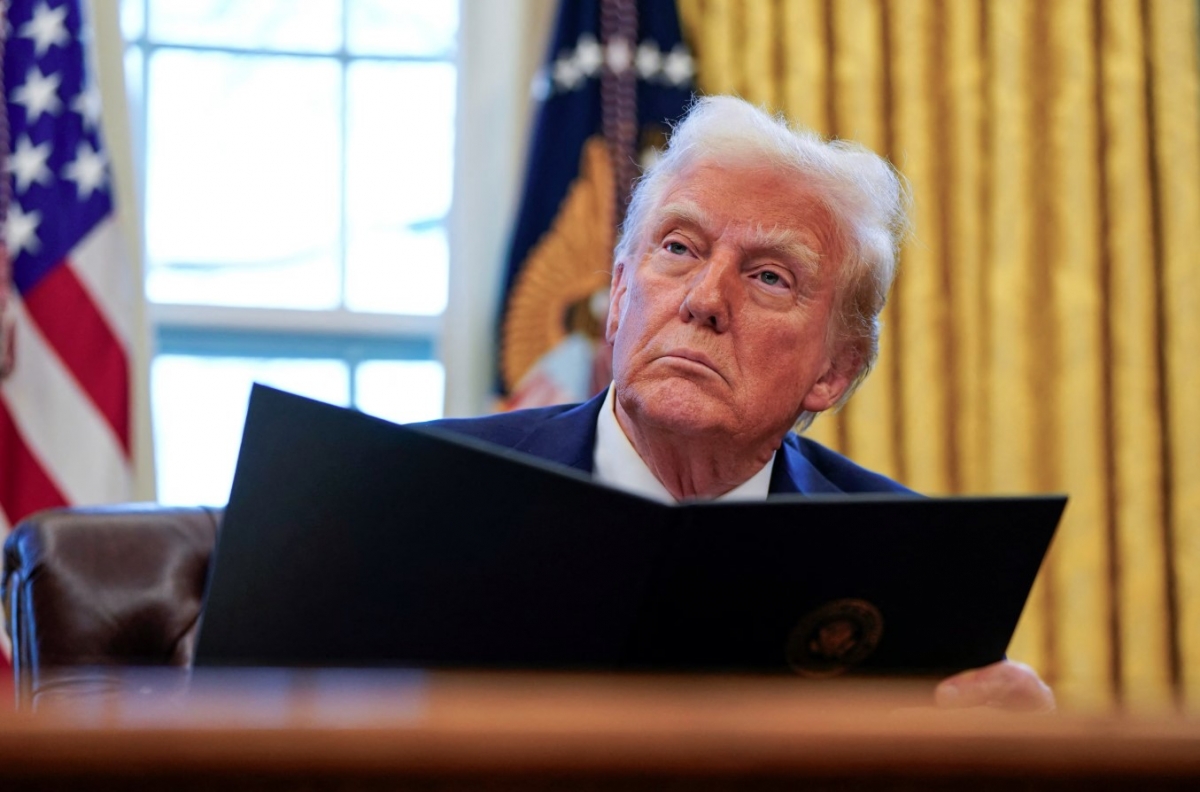
In the face of the increasing wave of fake pornographic images using Artificial Intelligence (AI) that has shocked the United States and the world, on May 19, US President Donald Trump signed into law the “Take It Down Act” to deal with the act of distributing private images without the consent of the victim, including images created using deepfake technology.
The signing ceremony took place in the White House Rose Garden with the presence of First Lady Melania Trump, who actively lobbied Congress to pass the bill.
Although she has no formal role in the legislative process, Melania also signed a symbolic bill, demonstrating her strong commitment to protecting children and women from the illegal dissemination of sensitive images in digital space.
Previously, in March, in her first public appearance since taking on the role of First Lady, Mrs. Melania went to Capitol Hill to lobby House members to pass the bill after the Senate approved it.
President Trump has claimed that the rise of AI has led to many women being victimized by fake, unwanted pornography. He said the practice is “totally illegal” and that violators face up to three years in prison.
The new law makes it a federal crime to knowingly post or threaten to post private images, whether real or AI-generated.
Social media platforms and websites are responsible for removing infringing content within 48 hours of receiving a request from a victim, and must take measures to handle duplicate content.
Speaking at the event, Melania called it a “national victory” and warned of the dire impact of AI on children.
The proliferation of apps that use AI to create fake nude photos is outpacing efforts to regulate the technology around the world.
Not only politicians and celebrities, but also ordinary women, even high school students, are becoming targets of attack.
Recently, a series of scandals involving AI pornography in schools across the US have caused public outrage, as hundreds of teenagers were exposed to fake images created by their classmates using technology and then spread.
Experts warn that non-consensual dissemination of images can lead to harassment, bullying, blackmail and sometimes serious psychological harm.
Before being signed into law by President Trump, the bill sponsored by Senator Ted Cruz (Texas) and Representative Maria Elvira Salazar (Florida) received overwhelming support from both parties, with a 409-2 support ratio in the House of Representatives and passed in the Senate with absolute consensus.